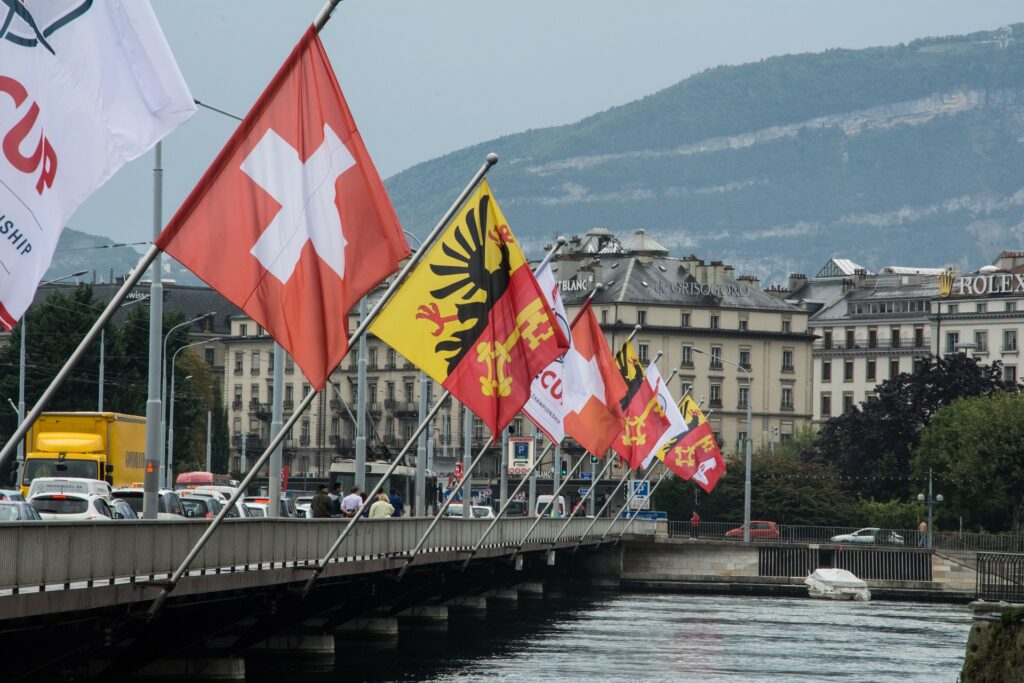In today’s interconnected world, the complexities of international documentation can pose significant challenges. At our London-based translation company, we excel in providing certified translations of birth certificates, or actes de naissance, from all French-speaking regions to the UK, ensuring meticulous precision and utmost professionalism in handling each document. Whether you’re planning an international relocation, starting a new career or seeking admission to a prestigious university, your birth certificate opens doors. Acknowledging its importance, we focus not only on translating text but also on building trust—guaranteeing that every word on your document complies with strict legal and administrative standards.
Our team consist of professional translators who are proficient in both French and English, equipped with a deep understanding of the specific legal requirements in France, Belgium, Switzerland and the UK. This expertise allows us to ensure that every translation matches the exact format and terminology required by your destination’s local authorities, thereby facilitating your applications.
In France, the registration of birth certificates is a meticulously organised process, centrally managed at the local mairie (town hall) where the birth took place. This centralisation ensures uniformity and accessibility, reflecting the structured nature of French civil documentation. Each town hall is equipped to issue three types of birth certificates, catering to different needs: a full copy (copie intégrale), a family record (extrait avec filiation) and an individual record (extrait sans filiation).
Full Copy (Copie intégrale): This document provides a comprehensive record of the birth, including all details as recorded in the municipal birth register. It includes the individual’s full name, date and place of birth, along with the names and pertinent information of the parents. Additionally, marginal notes—annotations added to the certificate over time—offer crucial updates relating to the individual’s major life events such as marriage, divorce, death or even a change of nationality. This version is particularly vital for legal proceedings, where proving family relationships or individual status is necessary.
Family Record (Extrait avec filiation): This extract provides similar information to the full copy but is presented in a condensed form. It includes details of the person’s birth as well as the parents’ names, making it suitable for situations where proof of lineage is required.
Individual Record (Extrait sans filiation): This type serves individuals who need to prove their identity but do not need to disclose family connections. It includes the person’s details about birth but omits parental information, often used for general identity verification purposes without revealing sensitive family data.

The precision with which these documents are crafted and the comprehensive nature of the information included demand expert translation when they are to be used outside of France. Marginal notes, for example, can significantly alter the interpretation of one’s civil status and must be translated with a high degree of accuracy. Such nuances in translation ensure that the document’s integrity is maintained across different legal systems, which may have varying requirements for document validity and recognition.
Understanding the intricacies of these certificates and their implications in both personal and legal contexts underscores the importance of choosing a skilled translator. Such expertise is crucial not only for ensuring legal compliance but also for preserving the rightful legal and personal narrative of individuals as they navigate life’s milestones across borders.
In Quebec, the management of birth certificates stands as a model of efficiency and accessibility, prominently featuring its bilingual service provision. This Canadian province operates under a distinct civil law system, separate from the common law system used in the rest of Canada. Birth registration is managed by the Directeur de l’état civil, Quebec’s registrar of civil status, which ensures the registration of births, deaths and marriages within the province. The process starts in the hospital with the issuance of a ‘statement of birth’. This document is provided to the parents by hospital staff and contains all the essential information about the newborn. It acts as a preliminary record and simplifies the parents’ task of officially registering the birth.
This streamlined procedure not only expedites the registration process but also reduces the paperwork burden on new parents. Parents are required to submit the signed statement of birth to the Directeur de l’état civil within 30 days of the child’s birth. This can be done through mail or, increasingly, through an online system that Quebec has been perfecting to further ease and quicken the process. This digital option aligns with modern needs and caters to the tech-savvy population, promoting efficiency and environmental sustainability by reducing the use of paper.
Reflecting Canada’s commitment to bilingualism, all services offered by the Directeur de l’état civil are available in both French and English. This is particularly significant in Quebec, where the population includes a significant number of Anglophone residents alongside the Francophone majority. The availability of services in both languages promotes inclusivity and ensures that all residents have equal access to vital civil services without language barriers. This policy also accommodates the needs of mixed-language families and the province’s diverse immigrant population. The inclusive language policy not only meets the administrative needs of Quebec’s population but also serves as a cultural recognition of the province’s unique identity within Canada. It respects the historical and ongoing contributions of both the Anglophone and Francophone communities to the province’s development. Moreover, it underscores the legal frameworks established by the Canadian Charter of Rights and Freedoms, which enshrines the right to government services in both official languages.
In Quebec, the approach to birth certificate registration exemplifies the province’s modern, inclusive, and efficient administrative practices. It highlights how Quebec uniquely navigates its dual linguistic heritage, setting a standard for service delivery that respects cultural diversity while promoting streamlined governmental processes. This system not only facilitates the immediate needs of registering a birth but also integrates these records into the broader fabric of civic life, ensuring that all citizens can access and utilize their civil rights from birth onward.

In the heart of Europe, Switzerland stands as a beacon of linguistic diversity and administrative precision, particularly in the management of life’s fundamental milestones such as the registration of births. The Swiss approach, particularly in its French-speaking cantons like Geneva, Vaud and Neuchâtel, exemplifies a blend of centralised efficiency and cultural sensitivity, making it a fascinating study in civil documentation. In these cantons, the Office de l’état civil (Civil Registry Office) holds the pivotal role of maintaining a central registry. This system not only streamlines administrative processes but also ensures uniformity and accuracy across the board.
Unlike systems where birth registration might be handled on a more local or fragmented basis, Switzerland’s centralisation allows for a cohesive approach to civil status management, which is crucial in a country known for its meticulous attention to detail and governance. The Swiss system mandates that all births be registered within three days, a directive that underscores the country’s commitment to timely and orderly civil record-keeping. Hospitals play a crucial role in this process as they typically notify the local civil registry office of births. However, the onus is on the parents to provide additional essential information to formalise the registration. This requirement ensures that all necessary legal and personal details are accurately captured right from the start.
Swiss civil registries issue the certificat individuel d’état civil—an individual civil status certificate that serves as the official birth certificate. Remarkably, this document can be requested in multiple languages, including the country’s four national languages: German, French, Italian and Romansh. This multilingual capability is not just a nod to Switzerland’s diverse linguistic landscape; it is a practical solution that caters to the needs of all citizens, ensuring that everyone, regardless of their linguistic background, has equal access to essential civil services. The provision of services in multiple languages within the Swiss civil registries is a shining example of how administrative processes can be both inclusive and efficient.
It reflects a deeper understanding of the societal fabric of Switzerland, a country that prides itself on its cultural richness and democratic values. By accommodating its linguistic diversity, Switzerland not only upholds the rights and identities of its citizens but also reinforces its role as a model of social integration and administrative excellence. This system not only facilitates the immediate practicalities of birth registration but also weaves these records into the broader tapestry of Swiss civic life, ensuring that every individual’s rights are recognised and protected from birth. The Swiss model, therefore, offers valuable insights into how governance can effectively intersect with cultural respect, making it an exemplary study in the management of civil status within a multilingual and multicultural context.
Belgium, a country renowned for its rich history and cultural diversity, has a unique approach to civil documentation that mirrors its commitment to both local autonomy and international cooperation. The process of birth registration in Belgium highlights this dual approach, ensuring that every new citizen is woven into the fabric of society through a system that is both locally rooted and globally oriented. In Belgium, the responsibility of birth registration falls to the local commune’s bureau de l’état civil (civil status office) located in the area where the birth occurred. This decentralisation allows each commune to cater to its residents with a touch of local flavour while adhering to national standards. Parents are given a 15-day window to register their newborn, a period that is reflective of a balance between prompt official recording and giving space to new parents to adjust to their roles. One of the most notable features of the Belgian system is its integration into the broader international context. Belgium’s participation in the Apostille Convention simplifies the international use of documents, including birth certificates. These certificates are issued in multiple languages and are recognised internationally without the need for further legalisation or translation. This is particularly advantageous in a world where movement across borders is frequent and families often find themselves navigating the bureaucracies of multiple countries.
Belgium’s multilingual birth certificates are a testament to the country’s linguistic diversity—acknowledging its three official languages: Dutch, French and German. The availability of these certificates in multiple languages not only facilitates international affairs but also reinforces the inclusive nature of Belgian identity, which embraces and promotes its internal diversity. Moreover, while the process is streamlined and standardised, specific communes may impose additional requirements, allowing them to address local needs or concerns effectively. This flexibility ensures that the birth registration process is not just a bureaucratic necessity but a service that adjusts to the cultural and administrative contexts of different regions within Belgium. Through this sophisticated blend of local responsibility and international compatibility, Belgium offers a model of how countries can manage civil documentation in a way that respects the nuances of local identities while embracing a globalised framework. This approach not only secures the rights of the youngest citizens but also ensures their seamless integration into both national and international spheres, preparing them for a world where their lives might span continents.

Nestled in the scenic Italian Alps, Aosta Valley is not just celebrated for its breathtaking landscapes and rich history but also for its unique approach to administrative traditions, reflecting its status as a French-speaking region within Italy. The process of birth registration in Aosta exemplifies a seamless blend of Italian organisational structure with local cultural nuances, providing an intriguing glimpse into the region’s governance. In Aosta, as in the rest of Italy, the registration of births is managed by the local anagrafe (registry office) of the municipality where the birth occurred. This system, while rooted in Italian law, is sensitively adapted to accommodate the French-speaking population. Parents are required to register their newborns within ten days of birth, a timeline that underscores Italy’s commitment to thorough and efficient civil record-keeping. The birth registration process is initiated by the healthcare provider—typically a doctor or midwife—who attended the birth. They issue a birth certificate (certificato di nascita) that serves as the official documentation of the event. This document, along with the identification details of the parents and their marriage certificate if applicable, is presented to the anagrafe. This meticulous approach ensures that every critical detail is captured accurately, securing the child’s rights from the outset.
Aosta’s adherence to this rigorous procedure does more than fulfil legal necessities; it showcases the region’s capability to integrate its linguistic uniqueness within the broader Italian administrative framework. The availability of bilingual services in both Italian and French not only facilitates local governance but also enhances accessibility and inclusivity, ensuring that all residents, regardless of their linguistic background, receive equal treatment under the law. This model of governance in Aosta Valley is particularly effective in safeguarding the rights of its citizens and integrating them into the social, legal and healthcare systems that support their development throughout their lives. Even in this remote alpine region, the state’s mechanisms to protect its youngest citizens are as robust and comprehensive as in any major Italian city. Thus, the administrative practices observed in the tranquil offices of Aosta’s anagrafe are not merely procedural but foundational to the broader principles of rights and responsibilities that govern civic life. The region’s approach to birth registration not only respects and preserves local cultural identity but also aligns seamlessly with national legal standards, illustrating the successful fusion of local customs with national governance.
In the diverse landscapes of French-speaking Africa, birth registration processes are nuanced and heavily influenced by local customs and infrastructural realities. Countries such as Ivory Coast, Senegal and the Democratic Republic of the Congo (DRC) each have unique systems and challenges that reflect their cultural, administrative, and economic environments.

In Ivory Coast, the registration of births should occur within 90 days at local registry offices (état civil). However, reaching these offices can be challenging in rural areas due to poor infrastructure, leading to delays and under-registration. If a birth is not registered within the legal timeframe, obtaining an official birth certificate requires a court judgment. This process can be both costly and time-consuming, often necessitating legal assistance and further complicating access to rights and services such as education and healthcare.
Senegal operates a decentralised system where local état civil offices are responsible for birth registrations. This can lead to discrepancies in the quality of record-keeping between urban and rural areas. Cultural practices also play a significant role in registration rates. In some communities, births may not be registered immediately due to traditional beliefs or priorities, or due to parents’ limited understanding of the legal importance of birth registration.
In Democratic Republic of the Congo (DRC), the law mandates registration of all births within 90 days at local registry offices. However, ongoing conflicts and a lack of robust governmental infrastructure make this difficult, particularly in conflict-affected regions. These difficulties are reflected in the DRC’s low birth registration rates, which have significant implications for children’s rights and access to public services. Unregistered children are often invisible to the state, complicating their access to justice, healthcare and education.
The variability in record-keeping and the formalities involved in correcting or registering late births create complex scenarios for translation. Documents may come with annotations or additional legal paperwork that must be accurately translated to be understood and accepted in foreign jurisdictions. The consequences of non-registration are profound, impacting an individual’s ability to participate fully in civic life. Without a birth certificate, accessing government services, opening bank accounts and voting can become insurmountable challenges. These challenges highlight the need for international cooperation and aid in improving civil registry systems in these regions. Such efforts can help standardize practices, improve access to registry services, and ultimately support the rights of the population.
The complexities of birth registration in French-speaking Africa underscore the importance of understanding local contexts and the need for tailored approaches in administrative processes. For translators, it emphasises the necessity of meticulous attention to detail and a deep understanding of local legal and cultural nuances to ensure that translations accurately reflect the original documents’ intent and legal status.
We understand that time is often of the essence; thus, we take pride in our ability to offer swift and efficient service. Our streamlined processes are designed to deliver quick turnarounds without compromising on quality, positioning us as a reliable partner during time-sensitive transitions.
Each document we translate is subjected to a rigorous quality control process to eliminate any errors that could potentially disrupt your plans. This attention to detail reflects our commitment to excellence and our understanding of how crucial each document is to your future.
Choosing our services means opting for a partner who values your aspirations as much as you do. We provide more than just translations; we offer peace of mind and a smooth transition as you embark on your next chapter abroad.
Trust us to connect your worlds with certified precision—because your journey deserves the very best support.

